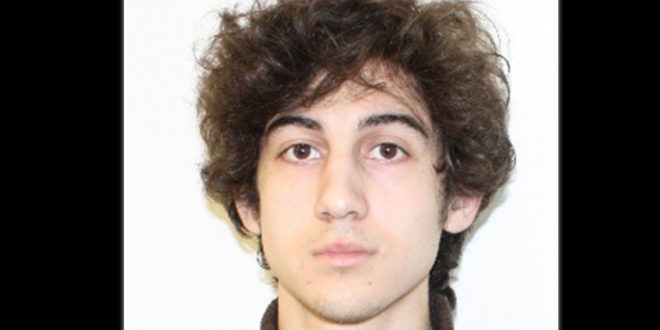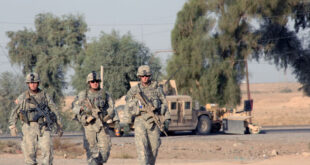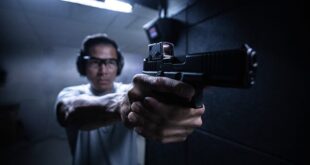Convicted Boston Marathon bomber Dzhokhar Tsarnaev launched another bid to avoid execution, asking the 1st U.S. Circuit Court of Appeals to consider four constitutional claims not taken up when his death sentence appeal went to the Supreme Court last month.
Tsarnaev’s attorneys in a filing Thursday said the trial court “improperly forced” their client to stand trial in Boston; violated his constitutional rights by denying his challenges to two jurors accused of lying during questioning; dismissed a potential juror because of that person’s opposition to the death penalty; and allowed the admission as evidence of what they called Tsarnaev’s “coerced confession.”
The trial at the time captivated Boston, and was conducted amid fears that a confederate would try to stage a breakout, or that Tsarnaev would somehow escape.
“Security was remarkably tight,” recalls longtime Soldier of Fortune correspondent Susan Katz Keating, who covered the trial for PEOPLE magazine.
At sentencing, Dzhokhar sought mitigation based on the theory that Tamerlan had masterminded the bombing and pressured Dzhokhar to participate. In an attempt to show Tamerlan’s domineering nature, Dzhokhar sought to introduce the statements of Ibragim Todashev, who had alleged during an FBI interview that, years earlier, Tamerlan had participated in a triple homicide in Waltham, Massachusetts. The Government asked the trial court to exclude any reference to the Waltham murders on the grounds that the evidence either lacked rele- vance or, alternatively, lacked probative value and was likely to con- fuse the issues. The Government also pointed out that, because FBI agents had killed Todashev in self-defense after he attacked them dur- ing the interview, there were no living witnesses to the Waltham mur- ders. The District Court excluded the evidence, and the jury concluded that 6 of Dzhokhar’s crimes warranted the death penalty.
On April 15, 2013, two pressure cooker bombs placed near the finish line of the Boston Marathon detonated within seconds of each other, killing three and injuring more than two hundred people. Law enforcement officials identified brothers Tamerlan and Dzhokhar Tsarnaev as primary suspects in the bombings. After an extensive search for the then- unidentified suspects, law enforcement officials encountered Tamerlan and Dzhokhar Tsarnaev in Watertown, Massachusetts. Tamerlan Tsarnaev was shot during the encounter and was pronounced dead shortly thereafter. Dzhokhar Tsarnaev, who fled the scene, was apprehended the following day and remains in federal custody.
A decade earlier, Tamerlan and Dzhokhar Tsarnaev immigrated to the United States from Kyrgyzstan with their parents Anzor Tsarnaev and Zubeidat Tsarnaeva. Anzor Tsarnaev, an ethnic Chechen, his wife Zubeidat Tsarnaeva, and their son Dzhokhar Tsarnaev arrived in the United States from Kyrgyzstan in 2002. They applied for and received an immigration benefit. The elder son, Tamerlan Tsarnaev, and his sisters, Bella and Ailina Tsarnaeva, arrived in the United States in 2003 and also received an immigration benefit. In the years that followed, all six family members became Lawful Permanent Residents of the United States.
Two years before the Boston Marathon bombings, Tamerlan Tsarnaev and Zubeidat Tsarnaeva came to the attention of the Federal Bureau of Investigation (FBI) based on information received from the Russian Federal Security Service (FSB). In March 2011, the FBI received information from the FSB alleging that Tamerlan Tsarnaev and Zubeidat Tsarnaeva were adherents of radical Islam and that Tamerlan Tsarnaev was preparing to travel to Russia to join unspecified underground groups in Dagestan and Chechnya. The FBI-led Joint Terrorism Task Force in Boston (Boston JTTF) conducted an assessment of Tamerlan Tsarnaev to determine whether he posed a threat to national security and closed the assessment three months later having found no link or “nexus” to terrorism.
In September 2011, the FSB provided the Central Intelligence Agency (CIA) information on Tamerlan Tsarnaev that was substantively identical to the information the FSB had provided to the FBI in March 2011. In October 2011, the CIA provided information obtained from the FSB to the the National Counterterrorism Center (NCTC) for watchlisting purposes, and to the FBI, Department of Homeland Security (DHS), and the Department of State for their information. Upon NCTC’s receipt of the information, Tamerlan Tsarnaev was added to the terrorist watchlist.
Three months later, Tamerlan Tsarnaev traveled to Russia, as the lead information stated he was preparing to do. However, Tsarnaev’s travel to Russia did not prompt additional investigative steps to determine whether he posed a threat to national security.
By April 19, 2013, after the Tsarnaev brothers were identified as suspects in the bombings, the FBI reviewed its records and determined that in early 2011 it had received lead information from the FSB about Tamerlan Tsarnaev, had conducted an assessment of him, and had closed the assessment after finding no link or “nexus” to terrorism. In the days that followed, Members of Congress asked questions of the Director of the FBI, the Director of National Intelligence (DNI), and other government officials about the handling of information concerning Tamerlan Tsarnaev prior to the bombings. The Intelligence Community Inspectors General Forum, with the support of the DNI, determined that the Inspectors General of the Intelligence Community, the CIA, the Department of Justice (DOJ), and DHS would conduct a coordinated review of the handling and sharing of information available to the U.S. government prior to the Boston Marathon bombings. The Inspectors General issued a public announcement of a coordinated, independent review on April 30, 2013.
 Soldier of Fortune Magazine The Journal of Professional Adventurers
Soldier of Fortune Magazine The Journal of Professional Adventurers






